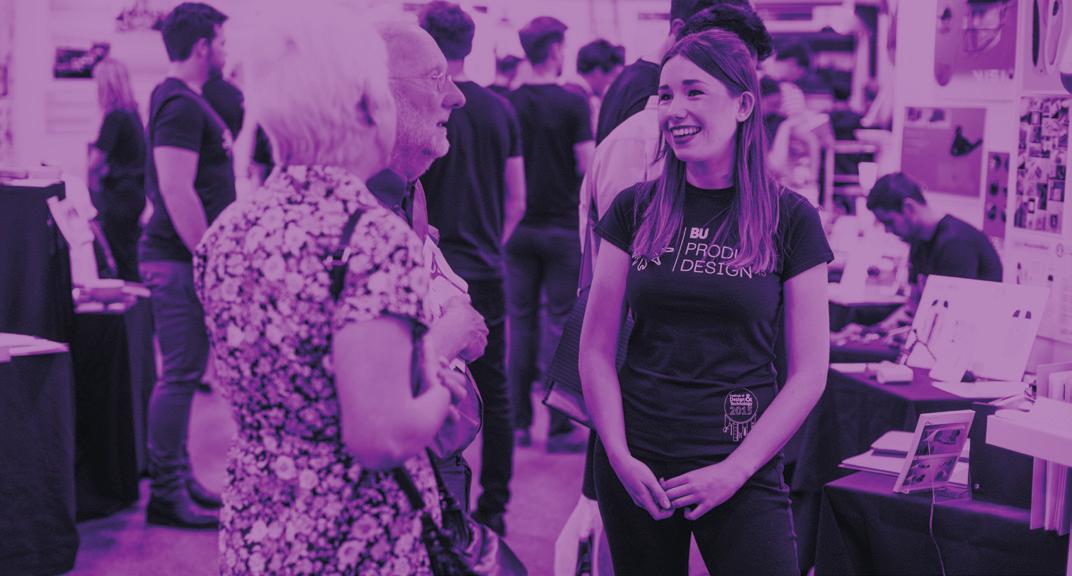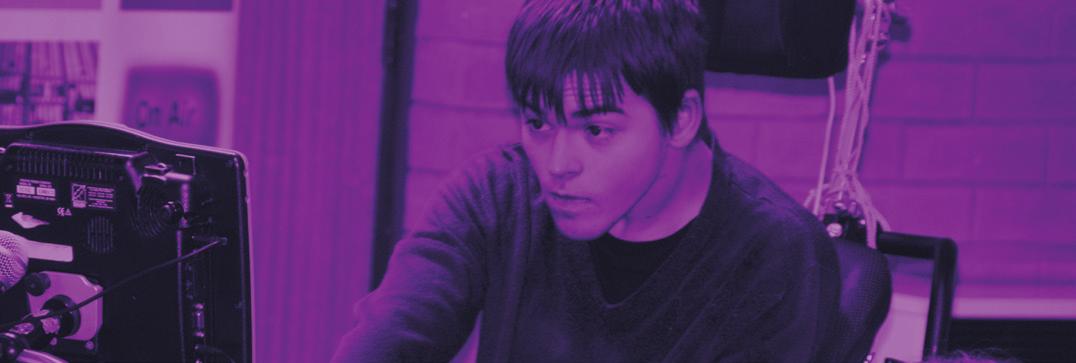
3 minute read
Responsible procurement
Our Sustainable Procurement Policy requires all purchases made at the university to consider social and environmental factors within their tendering process. Such factors include transport, packaging and impacts on the local community and economy.
For any purchases over £25,000, a Life Cycle Analysis is conducted which assesses the cradle-to-grave impact of the product, from resource extraction to disposal. The results are then used to identify the most significant impacts to ensure the product can be as sustainable as possible.
Bournemouth
Since 2014/2015, we have reduced our A4 paper orders by over one third
Excluding our major build projects, a quarter of our total supplier spend this year was spent within 50 miles of the university.
Ben Thomas Sustainable Design & Engineering Faculty of Science & Technology “We have continued to closely integrate sustainable design principles into our D&E courses. This has included more content in the first year to raise awareness of the impacts of products when they become waste, and some more detailed work in Masters units, where we dismantle a range of household products to look at their manufacturing, and then measure the environmental impact of the product over its whole life cycle. Students then redesign the product to reduce its impact and, where possible, try to create a closed loop ‘cradle-to-cradle’ solution. Finally, at the end of the unit the plastics from the household products are recycled back into prototyping sheets using the Innovation Centre recycling facilities.”

Impact on society
Through a range of research and excellent education, our academics are having a real-world impact on society. Here are just a few examples:
Hidden Stories of Online Gamblers

Online gambling is now accessible to a wide audience: young people, men, and women – we all occasionally come across online gambling or even engage with it. A team of researchers, led by Professor Raian Ali, are working to understand the extent of the problems caused by excessive online gambling. Most importantly we are making an impact by driving policy and industry practice changes. Online gambling behaviour data is already used to personalise the gambling experience and for marketing purposes, but could also be used to empower responsible gambling and identify patterns of problem gambling earlier. We aim to make online gambling more responsible, so that gamblers have access to their own individual gambling behaviour data and to have an opportunity to change their behaviour.

Seen But Seldom Heard Young people can often experience barriers to participation in community life and voicing their opinions on issues that affect them; these challenges become compounded when a young person also has direct experience of disability. Media representations of disability are largely negative due to the limited number of stereotypes used and these stereotypes contribute to the ‘invisibility’ of disabled people within society. ‘Seen but Seldom Heard‘ is a collaboration between Bournemouth University and Victoria Education Centre and Sports College, Poole, which aims to empower young disabled people with a ‘voice’ and the necessary creative skills to challenge stereotypes and engage in conversation about issues, policies and practices which affect them in their daily lives and their future aspirations.
Jane Healy Trafficking, Migration & Criminality Faculty of Health & Social Sciences In her unit, Jane challenges dominant media messages of women as inherently vulnerable victims of sexual exploitation and instead presents a more complex discourse framed within the context of increasing globalisation and gender inequalities. A range of speakers from diverse fields working against human trafficking and modern day slavery contribute to students learning, alongside sessions on theory and applied knowledge. The unit highlights how complex narratives of agency, victimhood and illegal migration contribute to our understanding of what human trafficking really looks like and means.










